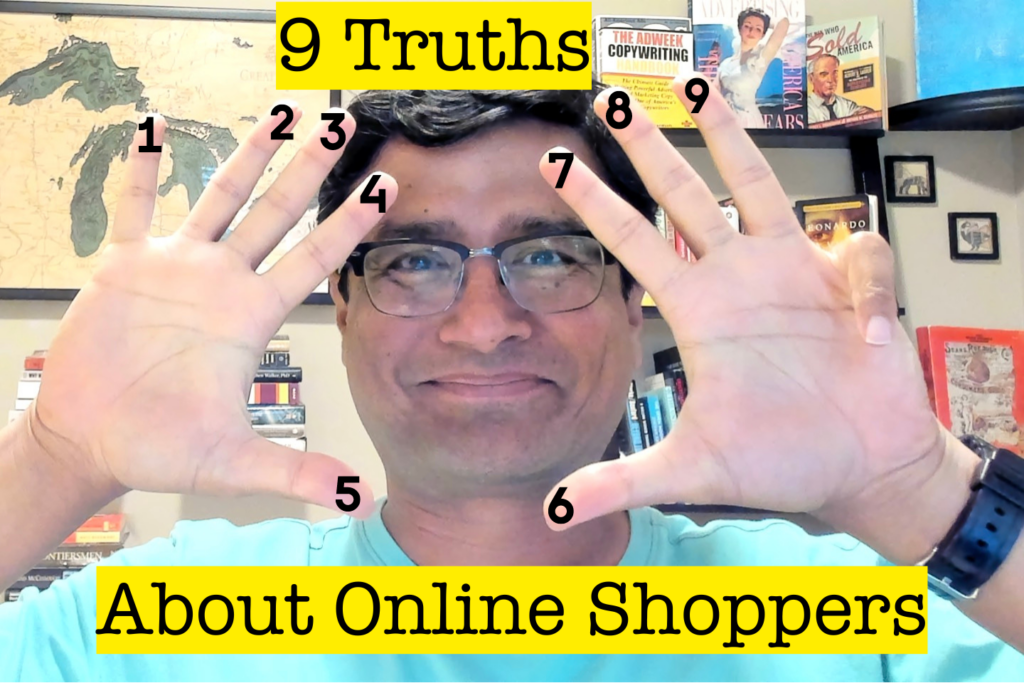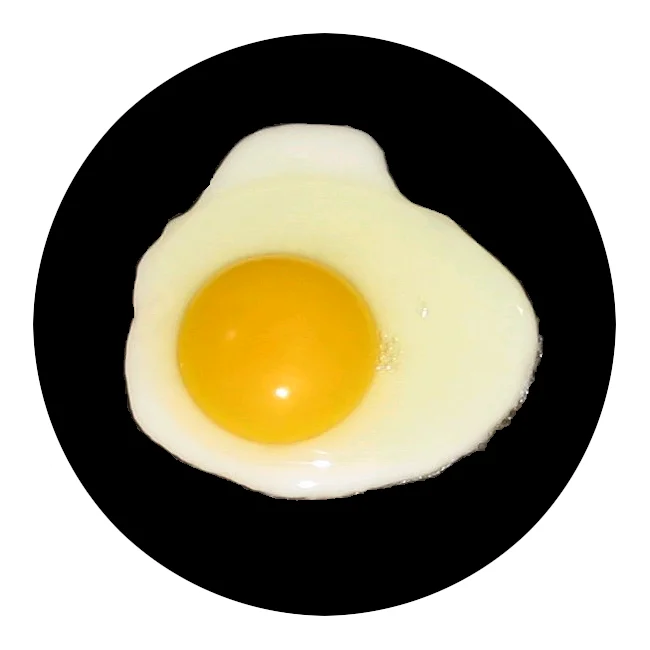Blog
The Final Push: Breaking Through the Conversion Barrier
The typical shopper is looking for the following:
– A clean, fast-loading site.
– High-quality images of the product in use.
– A quick product description.
– Social proof signals like reviews, return policy, etc.
The good news is your site already meets these expectations.
Beyond the Typical Shopper
However, beyond this group lies another that came close to buying but didn’t. Your existing content already influences these visitors—they just need a little more to get over the conversion line.

Why Focus on This Audience?
You’ve already spent your ad dollars attracting these visitors. They’re already sitting on your site. If they don’t buy today, they likely won’t return. (According to Shopify data, 70-80% of visitors don’t return.) This is why we need to focus all our marketing energy on converting the visitor on this visit itself.
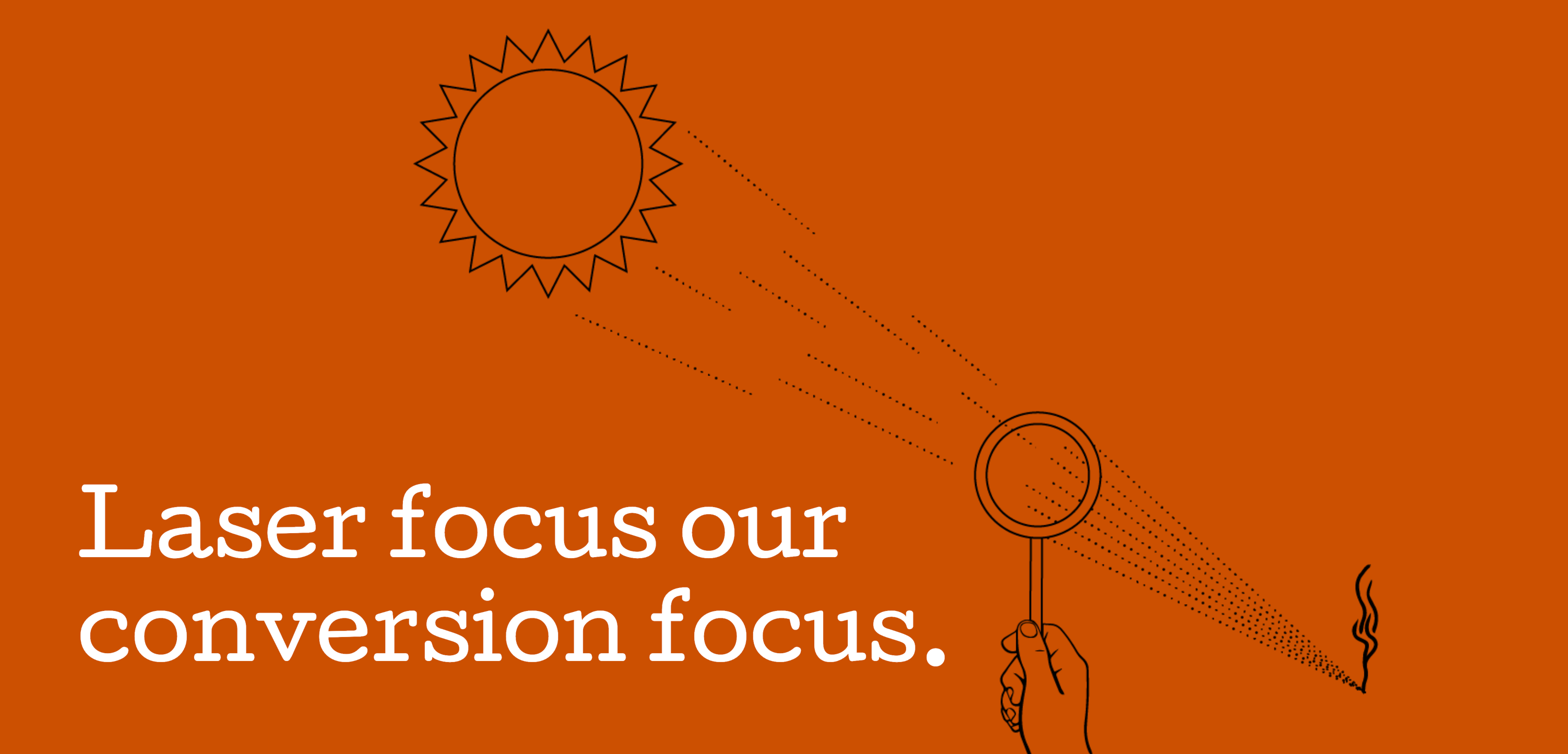
And even if the prospect needs multiple visits to buy, we can’t overlook the importance of the first.
On their first visit, the prospect’s attention is highest, their problem most pressing, and their willingness to buy at its strongest.
The headspace given on subsequent visits will be less than what you got on the first, and that’s why the first visit matters.
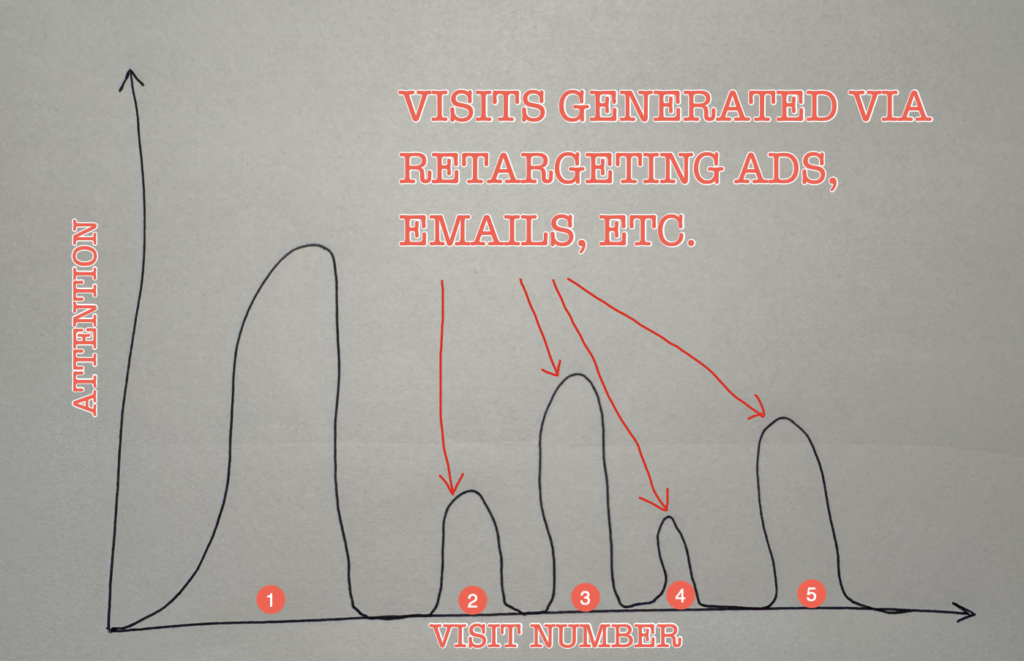
We need to figure out what to communicate on the first visit to maximize the visitor’s conversion probability. We need to find the right conversion catalyst.
Finding the Right Conversion Catalyst
Be glad it’s 2024 and not 2004.
In 2024, within two hours, we can formulate a pitch around a specific conversion catalyst and test it on actual shoppers, who, using their credit cards, will let us know if we’ve picked the right conversion catalyst.
It’s the ultimate marketing cheat code.
There are hundreds of conversion catalysts you can experiment with on your own -or- you can use the three we’ve discovered after 15 years of experiments.
“Why should I listen to you?” Check out these 26 case studies.
The Three Conversion Catalysts
1: Demonstration of Expertise
Convince a prospect you know 30x more about the problem they are trying to solve, and you’ll get their full attention.
Dive into the technical intricacies. Even if readers don’t follow every detail, they’ll sense your expertise.
When I visit my doctor, I don’t often understand the medical terms they are using, but it’s nice to know the doctor knows what she’s talking about. Her confidence helps calm me.
Of course, it isn’t that expertise is being displayed but how it’s being presented that makes the biggest difference. (Details about the how are at the bottom of this article.)
2: Price Justification
You already know how giving a 20% discount improves sales. What if we could achieve that same result without the discount? This is what Price Justification delivers.
With Price Justification, we are taking the spotlight away from discounts and shining it on value.

Think about it: you’ve spent years developing your product, spoken to thousands of customers, and incorporated their feedback to improve it. For one low price, the shopper gets to own something that took years to develop and perfect.
This is clearly a good deal for the buyer. But just like with Demonstration of Expertise, it isn’t the statement but how the price is justified that makes the real impact.
3: Us vs. Them
When the user first lands, they know they have alternatives. The trouble is, as long as they focus on these alternatives, they aren’t giving you their full attention.
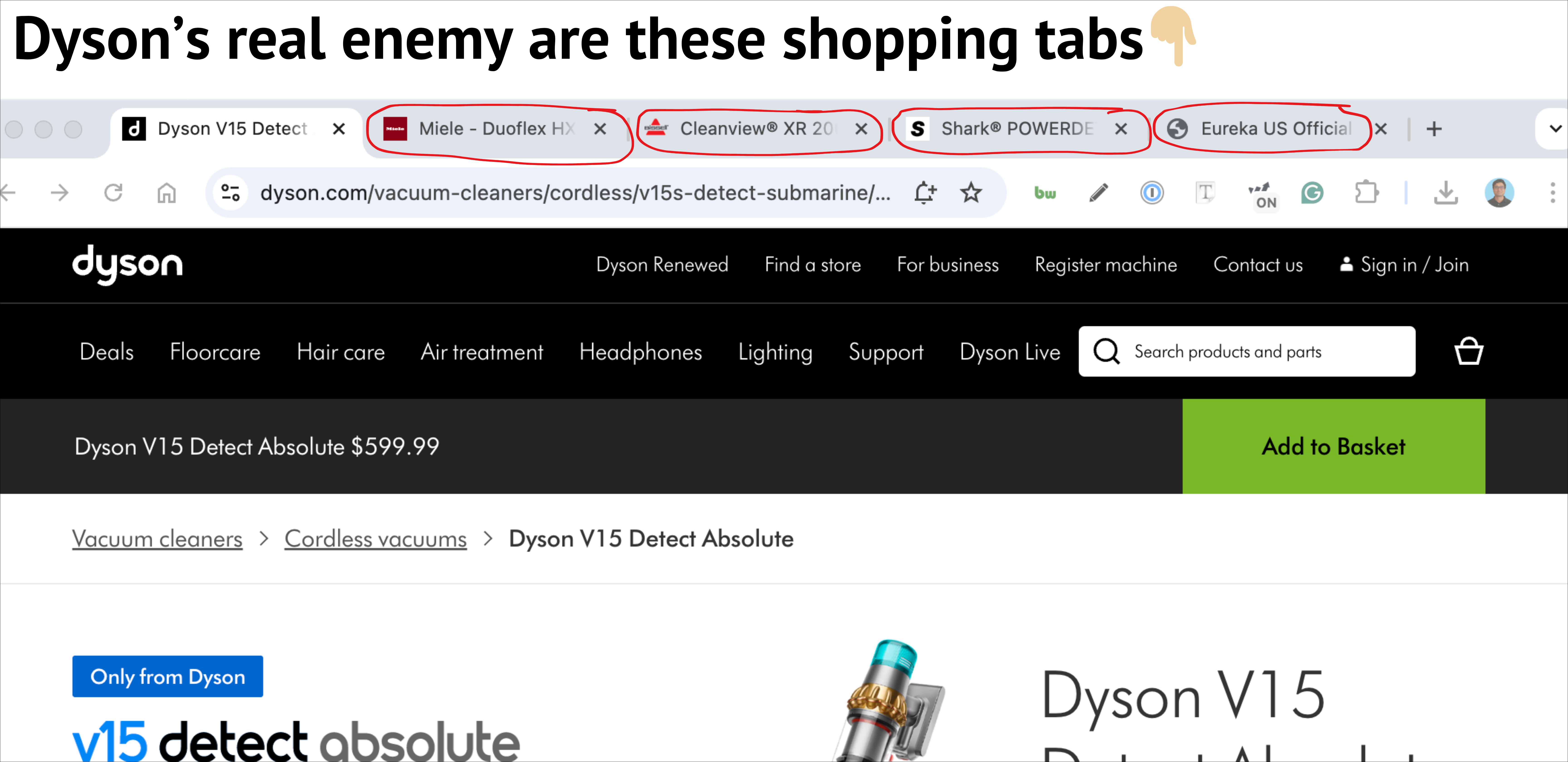
Our job is to let the reader see that comparing us with the other options is like comparing an apple to an orange. The how is explained below.
Final Thoughts
These three conversion catalysts will achieve 80% of your revenue goals, but if you want to understand how the tofu sausage is made, let me draw your attention to this Nine Truths article (click the image below). In it, we talk about all the decision-making processes online shoppers use before buying.
